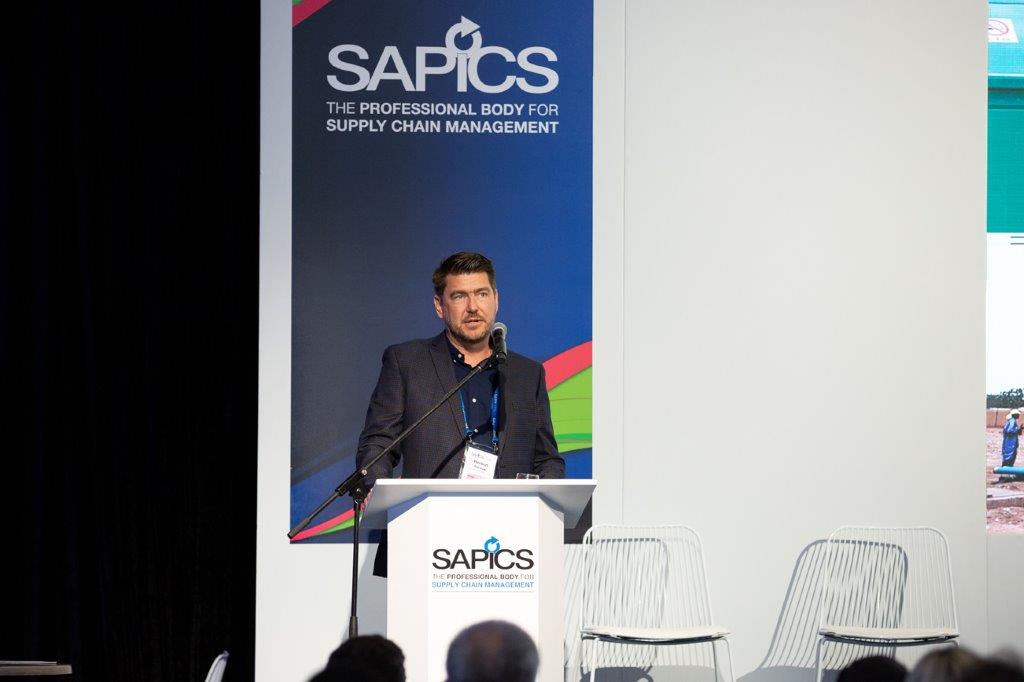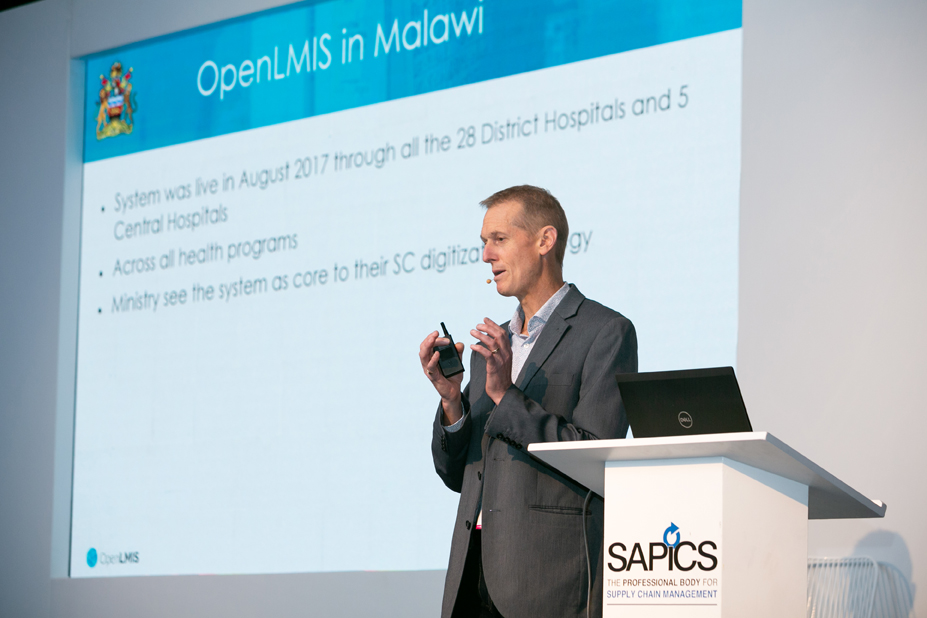African companies can do business with the United Nations (UN), and the process has been streamlined by the recent merging of the UN’s previously separate procurement and logistics departments into an integrated Office of Supply Chain Management in the Department of Operational Support.
This was the message delivered to around 600 African supply chain professionals at the 2022 SAPICS Conference in Cape Town by Herbert Pechek, who is the Chief of Supply Chain Service at the United Nations Global Service Centre (UNGSC) in Brindisi, Italy. “I am here as an ambassador, to enable you to do business with the UN,” Pechek told attendees, adding that the UN was striving to collaborate and partner with companies to strengthen and enhance its services and solutions.
Now in its 44th year, the annual SAPICS Conference is the leading event for African supply chain professionals. This year, the supply chain community gathered in person for the first time since the start of the pandemic.
In his informative presentation, Pechek highlighted the opportunities for African businesses to work with the UN by sharing details of the size, scope and scale of the organisation’s peacekeeping operations around the world. The UN is currently engaged in 35 missions around the world, with 90 000 uniformed personnel and 14 000 UN staff and volunteers. Pechek explained that the organisation’s mandate is to prevent conflicts, to protect civilians, build rule of law and security, to promote human rights, and to promote women, peace and security.
“We often need to build everything, from the ground up, because where we operate, there is often not much infrastructure; and whatever we bring, we must also dispose of,” he explained. From its transport requirements to water and sanitation, food, energy and technology, the range and volume of goods and equipment that the UN depends on to fulfil its mandate is massive, Pechek revealed. “UN peacekeeping operates 53 fixed wing aircrafts and 122 rotary wing aircrafts. Our ground and naval transportation fleet comprises 43 000 vehicles and three sea vessels. We operate 225 power generations stations that generate 65 million kWh of power. We must produce around five billion litres of drinking water a year, treat some 2.2 billion litres of wastewater and dispose of around 90 000 tons of solid waste.”
Technology is integral to enabling the UN’s peacekeeping operations. Pechek said that the organisation operates and maintains 650 satellite terminals and 500 000 pieces of equipment. To meet the food, rations and catering needs of its peacekeeping forces, the UN has 200 civilian cafeterias and 220 field kitchens. For its healthcare services, the UN operates 768 clinics that use 478 tons of medical supplies and drugs.
Pechek’s key message for the African supply chain professionals at the 2022 SAPICS Conference was that there are opportunities for many different African businesses, large and small, to supply the UN. The organisation’s purchasing requirements are vast and diverse, ranging from stationery, food supplies and health commodities to ICT, fuel, generators, armoured vehicles, aviation services, and much more.






